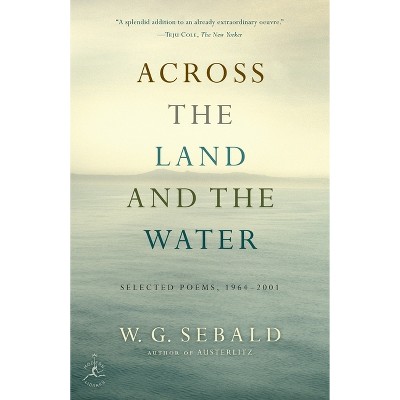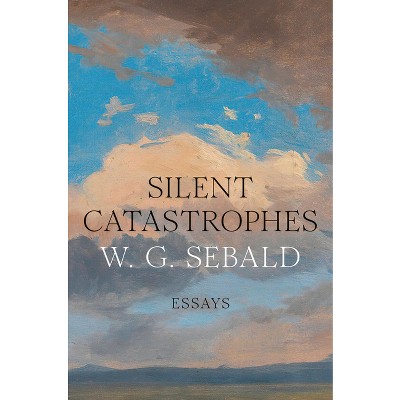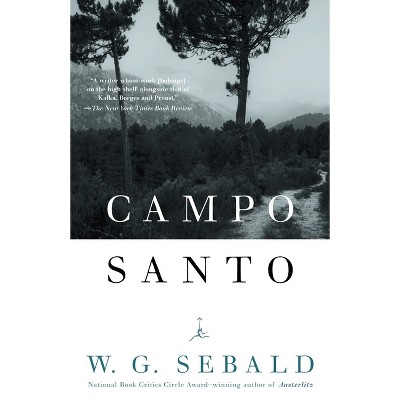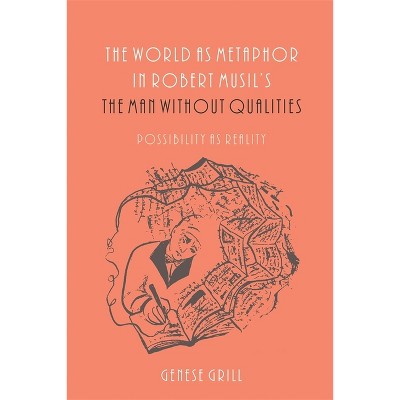Sponsored

W. G. Sebald - by J J Long (Paperback)
In Stock
Sponsored
About this item
Highlights
- The contemporary German author W. G. Sebald was a master of the fiction of recollection and observation, often exploring the reverberations of World War II on the personal and collective memories of Germans and Jews.
- About the Author: J. J. Long is professor of German at the University of Durham.
- 224 Pages
- Literary Criticism, European
Description
About the Book
The German author W. G. Sebald was a master of the fiction of recollection and observation, often exploring the reverberations of World War II on the personal and collective memories of Germans and Jews. Yet while literary scholars have identified a number of subjects in his novels-the Holocaust, trauma and memory, melancholy, photography, travel, intertextuality, and the nature and meaning of home-they have yet to tie these topics to the broader historical trajectories with which Sebald's work is fundamentally concerned. In "W. G. Sebald: Image, Archive, Modernity," J. J. Long identifies a wider "meta-problem" in Sebald-the problem of modernity. The numerous archival institutions and processes that lie at the heart of modernity are repeatedly explored in his novels, and photography, museums, libraries, and other institutions for producing and preserving knowledge are among his main obsessions. Long sees these systems as central to the exercise of power and the constitution of subjectivity, themes embodied in Sebald's melancholy search for autonomous selfhood. Considering the evocation of wonder in the prose narratives of "Vertigo," the use of family albums in "The Emigrants," the ambulatory narrative in "The Rings of Saturn," and the archival subject in "Austerlitz," Long advances a highly original interpretation of the author's oeuvre, casting Sebald's project as a response not only to post-Holocaust trauma but also to the longer history of modernity.
Book Synopsis
The contemporary German author W. G. Sebald was a master of the fiction of recollection and observation, often exploring the reverberations of World War II on the personal and collective memories of Germans and Jews. His rich body of work earned him legions of fans across the globe, but in the wake of his death in 2001, Sebald also became the subject of extensive critical study. Literary scholars have identified a number of subjects that frequently appear in Sebald's novels: the Holocaust, trauma and memory, melancholy, photography, travel, intertextuality, and the nature and meaning of home, but they have yet to locate an overarching narrative that ties these topics to the broader historical trajectories with which Sebald's work is also fundamentally concerned.
In W. G. Sebald: Image, Archive, Modernity, J. J. Long identifies a wider "meta-problem" in Sebald's work--the problem of modernity. The numerous archival institutions and processes that lie at the heart of modernity are repeatedly explored in Sebald's novels. Photography, museums, libraries, and other institutions for producing and preserving knowledge are among Sebald's main obsessions. Following Foucault, these systems are seen as central to the exercise of power and the constitution of subjectivity, themes embodied in Sebald's melancholy search for autonomous selfhood in an increasingly impersonal and bureaucratized age. Considering the evocation of wonder in the prose narratives of Vertigo, family albums in The Emigrants, the ambulatory narrative in The Rings of Saturn, and the archival subject in Austerlitz, Long advances a highly original interpretation of the author's oeuvre, arguing that Sebald's project needs to be understood as a response not merely to post-Holocaust trauma but to the longer history of modernity.Review Quotes
W. G. Sebald: Image, Archive, Modernity is an ambitious and coherent volume that provides a compelling account of the centrality to Sebald's work of "the longer history of modernity".-- "Contemporary Literature"
Concise and insightful.--Nicole Thesz "German Studies Review"
I've found this book to be greatly useful in developing a more thorough approach to Sebald (as well as a number of authors with whom Sebald shares several affinities), and I think this will be a book I'll be returning to often--Scott Esposito "Conversational Reading"
J. J. Long offers a novel approach to reading his texts by contextualizing Sebald's thought in the framework of modernism.--Margarete Johanna Landwehr "Bryn Mawr Review of Comparative Literature"
Long has produced a remarkable, meticulously researched volume that transcends "scholarship as usual"... Recommended.-- "CHOICE"
About the Author
J. J. Long is professor of German at the University of Durham. He is the author of The Novels of Thomas Bernhard and coeditor of W. G. Sebald: A Critical Companion. He has published widely on twentieth-century literature and has been a recipient of the Max Kade Prize for Best Essay in Modern Austrian Literature, and a Philip Leverhulme Prize.Shipping details
Return details
Frequently bought together



Trending Book Deals














